Want to know more about the Best Schools For Insurance Degrees In the US and make an informed decision? Here is a good place to start.
In the ever-evolving world of insurance, obtaining a specialized degree has become more significant than ever before. With a myriad of options available, choosing the ideal institution to kickstart your journey in this dynamic industry can be a daunting task.
We have meticulously researched and compiled a list of the best insurance colleges offering unparalleled insurance degree programs. In this blog post, we will guide you through these exceptional institutions, their unique offerings, and how they pave the way for a successful career in the insurance sector.
Please note that schools are selected based on our criteria (at the end of the article), ranked by the latest acceptance rate.
Table of Contents
#25. Kansas State University


- Acceptance rate: 95%
- Average entry score: 1165 SAT or 24-28 ACT
- Student-to-faculty ratio: 18 to 1
- Estimated cost of attendance (tuition and fees): $42,057
- Average earning potential for graduates: $45,700 (College Simply)
The College of Business Administration at Kansas State University offers a unique RMI program that emphasizes interdisciplinary learning.
An insurance major gains a strong foundation in insurance principles while also exploring related fields such as finance, economics, and law, creating well-rounded professionals ready to excel in the insurance industry.
Source: Kansas State University
#24. Indiana State University
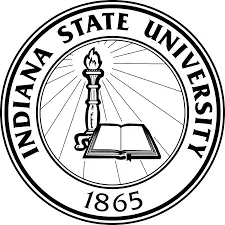

- Acceptance rate: 92%
- Average entry score: 930-1150 SAT or 18-25 ACT
- Student-to-faculty ratio: 18 to 1
- Estimated cost of attendance (tuition and fees): $17,986-$36,536
- Average earning potential for graduates: $48,300 (College Simply)
At Indiana State University, the Risk Management and Insurance program emphasizes the development of real-world skills. Insurance majors gain practical experience through internships, case studies, and industry-specific software, preparing them to excel in the dynamic insurance sector.
The program’s strong industry connections provide students with unique networking opportunities, ensuring they graduate ready for successful careers. Their graduates have gone on to work for top insurance and risk management firms, including Allstate Insurance Company, Aon Corporation and Towers Watson.
The program is accredited by the Insurance Institute of America, making it one of a select few programs in the country with this distinction.
Source: Indiana State University
#23. Pittsburg State University


- Acceptance rate: 91%
- Average entry score: 920-1180 SAT or 19-24 ACT
- Student-to-faculty ratio: 16 to 1
- Estimated cost of attendance (tuition and fees): $35,584
- Average earning potential for graduates: $38,200 (College Simply)
Pittsburg State University’s Insurance and Risk Management program distinguishes itself through its emphasis on community engagement. Students work on real-world projects for local businesses, gaining practical experience and forging strong connections within the industry.
This hands-on approach, combined with a comprehensive curriculum, ensures that graduates are well-prepared for successful careers in the insurance sector.
This way, students can enter the workforce with a solid foundation in the field, ready to hit the ground running.
Source: Pittsburg State University
#22. University of Mississippi
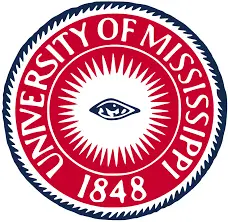

- Acceptance rate: 89%
- Average entry score: 1160-1609 SAT
- Student-to-faculty ratio: 16 to 1
- Estimated cost of attendance (tuition and fees): $27,046-$43,888
- Average earning potential for graduates: $41,500 (College Simply)
The University of Mississippi’s School of Business Administration offers an RMI program that emphasizes hands-on learning experiences.
Students work closely with industry professionals, gaining practical knowledge and insights that are invaluable in their future careers.
This helps students to gain an edge over other applicants and gives them a competitive advantage in the job market.
Source: Ole Miss
What’s it like to study at the University of Mississippi?
Similar articles like this:
#21. Arizona State University
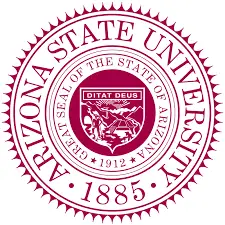

- Acceptance rate: 88%
- Average entry score: 1120-1180 SAT or 22-24 ACT
- Student-to-faculty ratio: 18 to 1
- Estimated cost of attendance (tuition and fees): $32,207
- Average earning potential for graduates: $52,000 (College Simply)
Arizona State University’s W. P. Carey School of Business offers an RMI program that focuses on innovation and entrepreneurship.
Students are encouraged to think creatively and develop novel solutions to complex insurance challenges, preparing them for success in a rapidly evolving industry.
The program brings together the best minds in insurance and technology to give students a unique perspective on emerging trends.
Graduates of this program are prepared to enter the field with an understanding of how data analytics can be used to improve business processes, enhance customer interactions, and increase employee productivity.
Source: ASU
#20. Washington State University
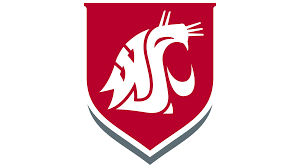

- Acceptance rate: 86%
- Average entry score: 1020-1260 SAT or 20-28 ACT
- Student-to-faculty ratio: 16 to 1
- Estimated cost of attendance (tuition and fees): $28,669-$43,985
- Average earning potential for graduates: $46,800 (College Simply)
Washington State University’s insurance program equips students with the knowledge and skills to excel in the competitive insurance industry.
By offering a robust curriculum, experienced faculty, and hands-on learning opportunities, the program molds insurance professionals through a blend of coursework, case studies, and internships.
Graduates emerge as well-rounded experts, ready to tackle challenges and shape the future of insurance, thanks to the university’s dedication to academic excellence and industry-focused learning experiences.
Source: Washington State University
#19. Kent State University
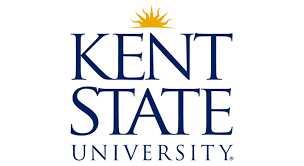

- Acceptance rate: 86%
- Average entry score: 990-1210 SAT or 18-25 ACT
- Student-to-faculty ratio: 20 to 1
- Estimated cost of attendance (tuition and fees): $30,050-$38,926
- Average earning potential for graduates: $44,800 (College Simply)
Kent State University’s Insurance Studies program is known for its industry-driven curriculum and dedicated faculty. Students benefit from a strong foundation in business principles, combined with specialized insurance courses tailored to their career goals.
The program’s flexible learning options, including online and on-campus courses, cater to the diverse needs of today’s students, while its emphasis on professional certifications further prepares them for success.
Kent State University boasts a high job placement rate, with 97% of graduates being employed within six months of graduation. The program’s alumni include industry leaders from a variety of sectors, including employee benefits, insurance brokerage and underwriting.
Source: Kent State University
#18. Saint Joseph’s University


- Acceptance rate: 83%
- Average entry score: 1120-1310 SAT or 25-31 ACT
- Student-to-faculty ratio: 11 to 1
- Estimated cost of attendance (tuition and fees): $65,105
- Average earning potential for graduates: $56,600 (College Simply)
At Saint Joseph’s University, the Haub School of Business offers a Risk Management and Insurance (RMI) program that emphasizes ethical decision-making in the insurance industry.
With a focus on social responsibility, students are prepared to navigate complex insurance issues while maintaining a strong moral compass.
Graduates leave the program with a strong foundation of insurance knowledge, as well as the tools needed to further their careers in the industry.
Source: Saint Joseph’s University
What’s it like to study at Saint Joseph’s University?
Similar articles like this:
- 25 Best Schools For Economics In The US
- 25 Best Schools For Biology In The US
- 25 Best Schools For English Language and Literature in the US
#17. University of Nebraska Lincoln
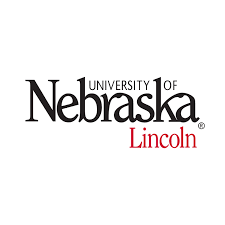

- Acceptance rate: 79%
- Average entry score: 1240 SAT or 24 ACT
- Student-to-faculty ratio: 16 to 1
- Estimated cost of attendance (tuition and fees): $26,252-$43,382
- Average earning potential for graduates: $42,700 (College Simply)
The College of Business at the University of Nebraska Lincoln offers a comprehensive RMI program that combines classroom learning with real-world applications.
Students benefit from internships, mentorship opportunities, and strong industry connections, ensuring they are well-prepared for successful careers in insurance.
With a skilled team of professionals, the University of Nebraska Lincoln prepares students to become industry-ready through a curriculum that includes courses in insurance, risk management, financial analysis, and business communications.
Students will also get the opportunity to work with experienced professionals who can help guide them through the process of applying their skillset in different contexts.
Source: University of Nebraska Lincoln
#16. University of Missouri
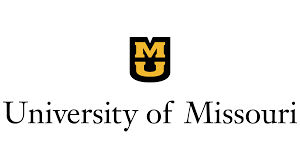

- Acceptance rate: 77%
- Average entry score: 1160 SAT or 24 ACT
- Student-to-faculty ratio: 18 to 1
- Estimated cost of attendance (tuition and fees): $29,168-$48,143
- Average earning potential for graduates: $46,800 (College Simply)
The Trulaske College of Business at the University of Missouri offers an RMI program that focuses on the integration of finance and risk management.
Students are taught to evaluate risk from a financial perspective, equipping them with the skills needed to excel in both the insurance and finance sectors.
This public university boasts a strong alumni network, which can be a valuable asset for students after graduation. Students will learn how to manage risk in their personal and professional lives, as well as how to apply these skills in different contexts.
They’ll also get a chance to work on a capstone project that helps them develop their own unique strategy for managing risk.
Source: University of Missouri
What’s it like to study at the University of Missouri?
#15. University of Cincinnati
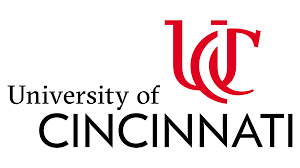

- Acceptance rate: 76%
- Average entry score: 1120-1330 SAT or 23-29 ACT
- Student-to-faculty ratio: 19 to 1
- Estimated cost of attendance (tuition and fees): $13,176-$28,510
- Average earning potential for graduates: $47,600 (College Simply)
The University of Cincinnati’s Insurance and Risk Management program offers a comprehensive curriculum that combines business fundamentals and specialized insurance courses.
This program uniquely integrates professional development opportunities, including mentoring, internships, and job shadowing, to give students a competitive edge.
Insurance students also have access to industry-specific resources, such as a library of federal and state laws and regulations related to insurance, risk management and actuarial science.
Additionally, students can participate in the Risk Management Association, which provides opportunities for networking with other students and professionals in the field.
UC also boasts a 100% job placement rate within six months of graduation, showcasing its commitment to student success.
Source: University of Cincinnati
#14. Georgia State University
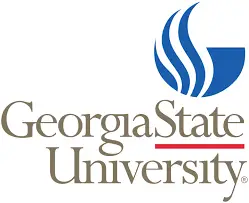

- Acceptance rate: 76%
- Average entry score: 960-1170 SAT or 19-26 ACT
- Student-to-faculty ratio: 27 to 1
- Estimated cost of attendance (tuition and fees): $46,969
- Average earning potential for graduates: $53,000 (College Simply)
Georgia State University’s Risk Management and Insurance program stands out for its global perspective and diverse course offerings. Students can customize their education by choosing from a wide range of elective courses, ensuring they gain specialized knowledge in their chosen field.
The program’s commitment to diversity and inclusion creates a vibrant learning environment, fostering collaboration and innovation.
Source: Georgia State University
What’s it like to study at Georgia State University?
Similar articles like this:
#13. Pennsylvania State University


- Acceptance rate: 74%
- Average entry score: 1200-1400 SAT or 26-32 ACT
- Student-to-faculty ratio: 14 to 1
- Estimated cost of attendance (tuition and fees): $36,484-$54,062
- Average earning potential for graduates: $61,800 (College Simply)
The Smeal College of Business at Pennsylvania State University boasts a dedicated RMI program, preparing students for a variety of careers in the industry.
A unique feature of this program is its strong emphasis on networking and professional development, allowing students to build valuable industry connections throughout their studies.
This way, even before graduates enter the workforce, they have already established strong relationships with potential employers and are well-positioned for successful careers.
Source: Smeal College of Business
#12. Temple University
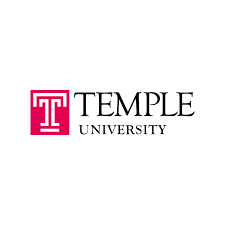

- Acceptance rate: 72%
- Average entry score: 1110-1340 SAT or 24-31 ACT
- Student-to-faculty ratio: 13 to 1
- Estimated cost of attendance (tuition and fees): $36,389-$50,899
- Average earning potential for graduates: $57,200 (College Simply)
Temple University’s Risk Management and Insurance program excels in providing students with a strong foundation in both risk management and insurance principles. The program’s dedicated faculty, who are experts in their fields, teach students to think critically and make informed decisions.
Temple’s emphasis on experiential learning, through internships and industry partnerships, ensures that graduates are well-equipped to succeed in the insurance sector.
Source: Temple University
What’s it like to study at Temple University?
#11. University of Colorado Denver
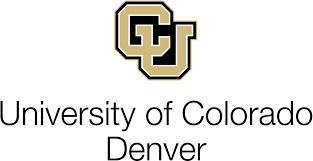

- Acceptance rate: 72%
- Average entry score: 1030-1260 SAT or 21-28 ACT
- Student-to-faculty ratio: 18 to 1
- Estimated cost of attendance (tuition and fees): $32,806-$54,046
- Average earning potential for graduates: $77,500 (College Simply)
University of Colorado Denver’s Risk Management and Insurance program stands out with its emphasis on experiential learning. Students participate in hands-on projects, internships, and competitions, fostering a deep understanding of the insurance industry.
Additionally, the program’s focus on ethical decision-making and social responsibility ensures that graduates are equipped to thrive as well-rounded professionals. Graduates are prepared to pursue a career in risk management, insurance law, legal compliance, or claims management.
Source: CU Denver Business School
#10. University of Minnesota Twin Cities
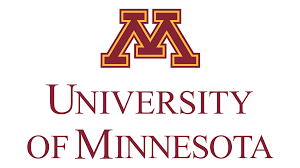

- Acceptance rate: 70%
- Average entry score: 1330-1500 SAT or 27-32 ACT
- Student-to-faculty ratio: 17 to 1
- Estimated cost of attendance (tuition and fees): $23,110-$52,088
- Average earning potential for graduates: $60,700 (College Simply)
The Carlson School of Management at the University of Minnesota offers a unique RMI program that incorporates analytics and technology into the curriculum.
Students are trained to use data-driven insights to make informed decisions in the insurance industry, setting them apart from their peers.
Graduates of this program are prepared to enter the field with a strong understanding of how data analytics can be used to achieve business goals.
Source: Carlson School
Similar articles like this:
#9. University of Wisconsin Madison
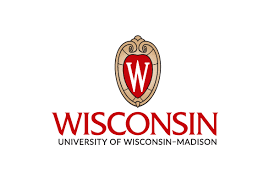

- Acceptance rate: 60%
- Average entry score: 1300-1480 SAT or 28-32 ACT
- Student-to-faculty ratio: 18 to 1
- Estimated cost of attendance (tuition and fees): $27,484-$55,372
- Average earning potential for graduates: $66,600 (College Simply)
University of Wisconsin Madison’s Risk and Insurance program uniquely combines insurance principles with actuarial science, providing students with a strong foundation in both fields. This interdisciplinary approach prepares graduates for a wide range of insurance-related careers.
The program’s strong alumni network also ensures students have access to valuable networking opportunities and industry insights.
Source: UW-Madison
#8. University of Illinois at Urbana-Champaign
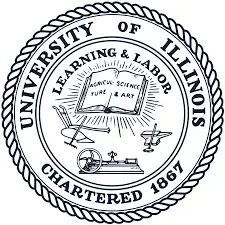

- Acceptance rate: 60%
- Average entry score: 1210-1470 SAT or 27-33 ACT
- Student-to-faculty ratio: 21 to 1
- Estimated cost of attendance (tuition and fees): $33,060-$50,510
- Average earning potential for graduates: $61,400 (College Simply)
The Gies College of Business at UIUC offers an RMI program that combines traditional coursework with cutting-edge experiential learning opportunities.
Students gain real-world experience in the insurance field through internships, case competitions, and industry partnerships.
With an experienced faculty, a strong alumni network, and opportunities for experiential learning, the Gies College of Business at UIUC is one of the best RMI programs in the country.
Source: UIUC
#7. Baylor University
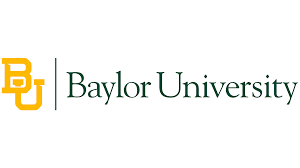

- Acceptance rate: 57%
- Average entry score: 1170-1360 SAT or 26-32 ACT
- Student-to-faculty ratio: 15 to 1
- Estimated cost of attendance (tuition and fees): $69,176
- Average earning potential for graduates: $56,300 (College Simply)
Baylor University’s Hankamer School of Business offers an RMI program with a strong focus on ethical leadership.
The curriculum is designed to develop students’ knowledge of the insurance industry and its impact on society, as well as their ability to apply this knowledge in leadership positions. It also emphasizes communication skills, which are essential for those who wish to pursue a career in sales or customer service.
Students are taught to approach insurance challenges with integrity and compassion, ensuring they emerge as responsible and highly sought-after professionals in the industry.
Source: Baylor University
#6. The Ohio State University
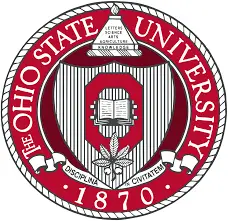

- Acceptance rate: 57%
- Average entry score: 1250-1440 SAT or 26-32 ACT
- Student-to-faculty ratio: 18 to 1
- Estimated cost of attendance (tuition and fees): $29,368-$52,451
- Average earning potential for graduates: $44,700 (College Simply)
The Fisher College of Business at Ohio State University offers an RMI program emphasizing critical thinking and problem-solving skills.
Students pursuing insurance programs at this college learn to assess risk and develop strategic solutions, preparing them for leadership roles within the insurance sector.
Backed by a strong curriculum and a dedicated faculty, the Fisher College of Business is well-equipped to provide students with a thorough understanding of the industry.
Source: The Ohio State University
Similar articles like this:
#5. University of Georgia
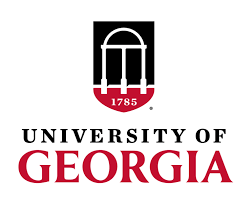

- Acceptance rate: 55%
- Average entry score: 1270-1450 SAT or 29-33 ACT
- Student-to-faculty ratio: 17 to 1
- Estimated cost of attendance (tuition and fees): $27,958-$46,998
- Average earning potential for graduates: $53,400 (College Simply)
The University of Georgia’s Risk Management and Insurance program focuses on research and innovation, setting it apart from other programs. Students benefit from the expertise of renowned faculty and access to cutting-edge resources, such as the university’s research centers.
This emphasis on research enables graduates to become thought leaders in the insurance industry, shaping its future. The University of Georgia boasts a 100-year history of teaching students how to be effective risk managers, with more than 1,700 alumni working in the field.
The school is ranked among the best in the nation for both its undergraduate and graduate insurance programs by U.S. News & World Report.
Source: UGA
#4. Florida State University
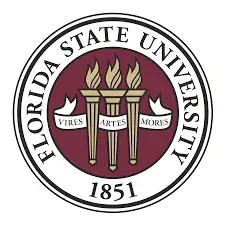

- Acceptance rate: 37%
- Average entry score: 990 SAT or 19 ACT
- Student-to-faculty ratio: 22 to 1
- Estimated cost of attendance (tuition and fees): $24,337-$39,503
- Average earning potential for graduates: $52,900 (College Simply)
Florida State University’s Risk Management and Insurance program is renowned for its strong emphasis on academic excellence and practical experience.
Students engage in internships, research projects, and case studies, honing their skills and gaining valuable industry knowledge. The program’s dedicated faculty and state-of-the-art facilities further contribute to the success of its graduates.
Source: FSU College of Business
#3. University of Texas at Austin
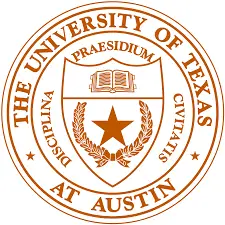

- Acceptance rate: 28%
- Average entry score: 1230-1480 SAT or 29-34 ACT
- Student-to-faculty ratio: 18 to 1
- Estimated cost of attendance (tuition and fees): $28,928-$57,512
- Average earning potential for graduates: $66,800 (College Simply)
The University of Texas at Austin’s Risk Management and Insurance program emphasizes innovation and technology, preparing students for the rapidly evolving insurance landscape.
Students benefit from cutting-edge courses, research opportunities, and partnerships with industry leaders. This forward-thinking approach ensures that graduates are ready to tackle the challenges of the modern insurance industry.
Source: The University of Texas at Austin
#2. New York University
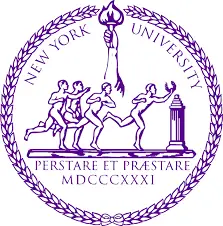

- Acceptance rate: 21%
- Average entry score: 1455 SAT or 33 ACT
- Student-to-faculty ratio: 8 to 1
- Estimated cost of attendance (tuition and fees): $80,878
- Average earning potential for graduates: $56,900 (College Simply)
NYU’s School of Professional Studies features an RMI program with a global outlook, providing students with a comprehensive understanding of international insurance markets and regulations.
This program also offers specialized concentrations, enabling students to tailor their degrees to specific areas of interest within the insurance industry.
NYU students take advantage of the school’s location in New York City, home to some of the largest insurance companies in the world. Students also have access to NYU’s extensive alumni network, which can be an invaluable resource for finding internships and jobs after graduation.
Source: NYU
#1. Boston University


- Acceptance rate: 20%
- Average entry score: 1310-1500 SAT
- Student-to-faculty ratio: 11 to 1
- Estimated cost of attendance (tuition and fees): $79,606
- Average earning potential for graduates: $92,400 (College Simply)
Boston University’s Risk Management and Insurance program offers a rigorous curriculum that develops analytical and problem-solving skills. Students benefit from expert faculty, cutting-edge research, and a strong emphasis on global risk management.
Graduates emerge as forward-thinking professionals, ready to navigate a complex and ever-changing insurance landscape.
They also have the ability to apply their knowledge in a variety of fields, including risk management, financial services, and personal insurance.
Source: Boston University
Conclusion
Unearthing the ideal school for insurance degrees can feel like maneuvering through a maze full of challenges. But with a little bit of research and some careful consideration, you can steer clear of any hidden traps and end up with a degree that will put you in the driver’s seat of your career.
So go ahead and put on your thinking cap – and maybe a cape too, because let’s face it, it’s always more fun to save the day in style!
Selection Criteria
Here is a list of the factors we considered when selecting the best colleges for insurance degree programs:
Please note that the order in this list might vary by ranking criteria and sources.
- Reputation and ranking of the school: We looked for schools that have a strong reputation and high ranking in the field of insurance.
- Faculty expertise, qualifications, and specialization: We researched the faculty members and their areas of expertise, and qualifications to ensure that the school has professors with relevant expertise and specialization in the areas of insurance that are of interest.
- Curriculum and resources: We evaluated the curriculum to ensure it aligns with students’ interests and career goals and considered the quality of the school’s facilities and resources, such as labs, equipment, and libraries.
- Opportunities for hands-on learning and research: We looked for schools that provide opportunities for hands-on experience through internships, co-op programs, or fieldwork.
- Student support services and alumni network: We considered the availability of support services and the strength of the alumni network in providing mentorship, internships, and job opportunities after graduation.
- Extracurricular activities and diversity: We evaluated the availability of extracurricular activities and clubs that align with students’ interests and considered the school’s diversity and inclusivity.
- Networking and post-graduation support: We researched the school’s network of alumni and their post-graduation support for insurance students, and also considered if the schools have a strong network of industry professionals and researchers in the field of insurance.
Frequently Asked Questions
Q1. What factors should I consider when choosing the best school for an insurance degree program?
When selecting a school for an insurance degree program, consider factors such as accreditation, curriculum, faculty expertise, location, tuition costs, financial aid availability, and job placement rates.
Additionally, assess the school’s reputation within the industry, networking opportunities, and available resources such as career services and internship programs.
Q2. Are there specific accreditation agencies I should look for when selecting an insurance degree program?
Yes, it’s crucial to choose a program accredited by a recognized agency, such as the Association to Advance Collegiate Schools of Business (AACSB) or the Accreditation Council for Business Schools and Programs (ACBSP).
These agencies ensure that the program meets high academic standards and adequately prepares students for careers in the insurance industry.
Q3. What are the typical courses offered in an insurance degree program?
Insurance degree programs generally cover subjects like risk management, property and casualty insurance, life and health insurance, insurance law, actuarial science, and underwriting.
In addition, students may learn about claims handling, insurance marketing, and insurance regulation, among other topics.
Q4. How long does it typically take to complete an insurance degree program?
The duration of an insurance degree program varies depending on the type of degree and the specific institution.
Generally, a bachelor’s degree in insurance takes about four years to complete, while a master’s degree can take between one and two years. Part-time and online programs may have more flexible timelines.
Q5. What types of careers can I pursue with an insurance degree?
Graduates of insurance degree programs can pursue various careers within the insurance industry, including roles as underwriters, claims adjusters, risk analysts, actuaries, insurance brokers or agents, and insurance regulators.
Additionally, some graduates may find opportunities in related fields such as finance, consulting, or human resources.
References
[1] Official Websites
[2] Salary Data from Glassdoor, College Factual; College Simply, Zippia
[3] Ranking references including news media such as Best Undergraduate Insurance Programs.


